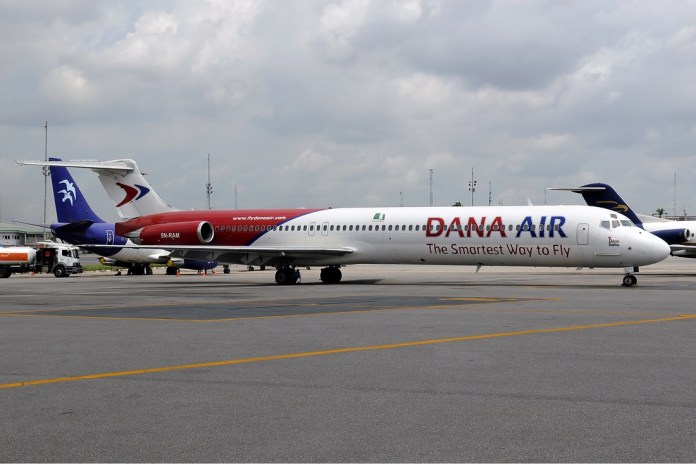- MTN, Other South African Businesses to Leave Nigeria -NANs
Following another killing of a Nigerian in South Africa, Nigerian students have ordered all South African companies doing business in Nigeria to shut down within a week and move out of the country, the National Association of Nigerian Students (NANS) stated on Tuesday.
In the last two years, 118 Nigerians have been killed in South Africa with another two killed last week to take the total to 120.
In the joint statement released by the students and the Nigerians in Diaspora Commission (NIDCOM), Comrade Danielson Akpan, President, NANS, said businesses linked to South Africa must leave Nigeria in ‘their own interest’ as Nigerian students can no longer tolerate the harassment, brutalisation, and killing of Nigerians in South Africa.
The statement titled: “South Africans Must Go; Nigerians Return Home From South Africa,” Akpan recalled that members of NANS have been on the streets in major cities of Nigeria in the last two weeks picketing South African businesses to draw global attention to the mindless killings of Nigerians and looting of their properties in South Africa.
He said that the picketing exercise was peacefully carried with the hope that the government of South Africa and her citizens would end all forms of attacks on citizens of Nigeria and other African nations.
“Behold, the killings have continued and has even assumed a more dangerous dimension. This worsening development calls for a swift reaction. Importantly, we want to call on Nigerians in South Africa to reconsider their stay in South Africa and return home.
“Having gone through the first phase without any remorse or practical action to end xenophobic attacks in South Africa, we wish to announce that Nigerian students have decided to take on South Africans same way they are doing to our people. We have seen the helplessness of the South African government in reining in their citizens and wish to condemn in unambiguous terms the continued pampering of those involved. Every nation has own internal crisis hence no citizen of other nation should be sacrificed for criminal activities of South Africans or any other.
“Since the economic prosperity of Nigerians can no longer be tolerated and their lives secured in South Africa, there’s no need also to condone the continued flourishing of South African businesses and her citizens in Nigeria.
“We therefore wish to officially ask all South African-owned businesses in Nigeria to relocate in the next seven days. We specifically want Multichoice, MTN, Stanbic IBTC Bank, Shoprite and others to close their businesses in their own interest within seven days.
“In the same vein, we request that South African nationals in Nigeria should return to their home country as we can no longer watch them enjoy peaceful living in Nigeria while our citizens in their country continue to pay with dear lives for no reason other than being resourceful and flourishing in their businesses and career.
“We have consistently maintained that diplomacy has failed in addressing the xenophobic question. We have heard and seen diplomatic measures put in place without any sincere action taken by the South African government. We have seen again that the people of South Africa are not committed to peaceful coexistence with other nationals, hence the wanton killings and destruction of other Africans.
Hon. Abike Dabiri-Erewa, Chairman and Chief Executive Officer of Nigerians in Diaspora Commission (NIDCOM), who appealed for calm so that government can use diplomatic means to find a permanent solution to the killings, said: “Really it’s pathetic, it’s sad. As we said before, until about 2016, we have had 118 Nigerians killed in South Africa. Between 2018 and today, 88 Nigerians have been killed in South Africa. Out of this 88, 25 were cases of Nigerians killing Nigerians and we have had the case of Mrs. Elizabeth Chukwue who was murdered in her hotel room.”
The NIDCOM CEO also said “Eight policemen are currently being investigated in South Africa for their involvement in killings of Nigerians. That investigation must come to an end and there must be consequences for their actions.
“We also must know who killed Mrs. Elizabeth Chukwu who went for a conference and died in her hotel room.
“We know that every country has their own challenges, we have ours and they have theirs. But killing other people is not the solution to anything. If a Nigerian commits a crime you deal with the person.”

 Forex3 weeks ago
Forex3 weeks ago
 Naira2 weeks ago
Naira2 weeks ago
 Billionaire Watch2 weeks ago
Billionaire Watch2 weeks ago



 Naira3 weeks ago
Naira3 weeks ago






 Naira2 weeks ago
Naira2 weeks ago




 Naira1 week ago
Naira1 week ago




 Naira4 weeks ago
Naira4 weeks ago






 Naira1 week ago
Naira1 week ago
























